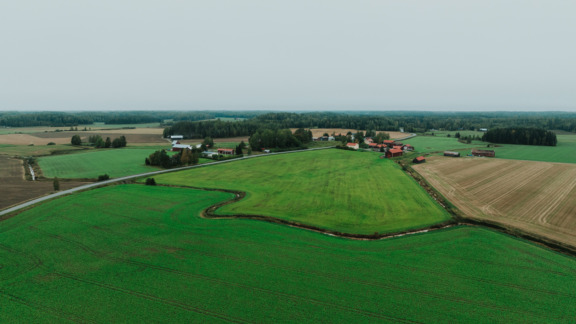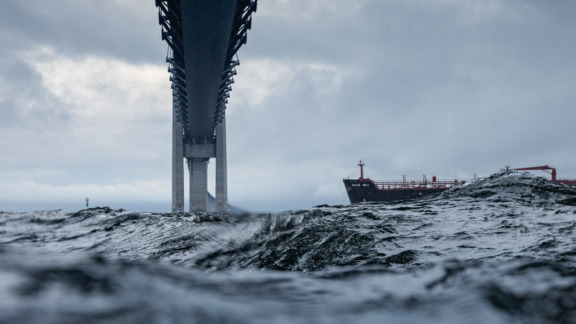Two out of three cargo ships discharge waste to the sea
The preliminary results of the ship survey confirm the importance of the topic: cargo ships discharge grey waters, food waste and treated black waters into the Baltic Sea – legally. This causes an additional nutrient input leading to further eutrophication. Compared to passenger ships, the amounts are small, but cannot be disregarded: all nutrient inputs are detrimental to the Baltic Sea. BSAG is taking urgent actions to raise awareness on board.
Almost third of the ships are not aware of the “No special fee” -system, which indicates that the special features and HELCOM recommendations are not known onboard ships sailing in the Baltic Sea. This fact was noted with concern by HELCOM Maritime Working Group (WG Maritime) online meeting, in which the project Grey waters and food waste ship survey midpoint results were presented in early October 2020.
The findings of the ship survey, active until end of 2020, underway in 12 Finnish ports by several members of Shipbrokers Finland, give interesting new information on cargo ships and their waste treatment:
- 69% of the ships arrived from another port in the Baltic Sea
- 20% of the ships have a holding tank only, no treatment plant
- 66% of the ships discharged grey waters or food waste or treated black waters into the sea enroute Finland
- nearly all ships discharged food waste ashore, but only 4% discharged treated black waters or grey waters into port reception facilities
- No special fee -system covered 75% waste discharged ashore (MARPOL Annex I, IV, V)
- 28% of the ships were not aware of the “No special fee” -system
Elisa Mikkolainen, project director in BSAG, presented the survey and research activities done under the project. In addition to a study done on the Finnish ports, two other studies are being conducted under the project. Samples are taken from cargo ships in order to evaluate the amount of nutrient and bacteria in grey waters, and a survey is done on ships calling at Finnish ports.
Raising awareness on special conditions of the Baltic Sea and No special fee -system
Ships and shipowners must be made aware of the special circumstances of the Baltic Sea, especially ones coming from ports outside the Baltic Sea. To tackle this, BSAG is committed to prepare an information package containing guidance in a compact and visual form to diminish the discharges into the Baltic Sea. This will be done with the Finnish maritime cluster which already supports the project in many ways and is in fact already acting responsibly by discharging all waste to ports. Sustainable practices must be encouraged to other ships sailing in the Baltic Sea.
The project contributes to the goals of the HELCOM Baltic Sea Action Plan in regard of eutrophication, hazardous substances and environmentally friendly maritime activities. The WG Maritime works to prevent any pollution from ships, including deliberate operational discharges as well as accidental pollution.
”The project run by BSAG supports Finland’s goals in developing the Baltic Sea Action Plan”, comments Laura Sarlin, Senior Specialist at Ministry of Transports and Communications. “The survey organized by BSAG and Shipbrokers Finland shows that discharges into the Baltic Sea take place from majority of cargo ships. Further, according to the survey, it is clear that the special features of the Baltic Sea are not fully understood onboard the ships. Therefore, we welcome the idea by BSAG to deliver an information package to ships sailing in the Baltic Sea.”

BSAG’s two year Grey waters in maritime traffic -project receives funding from the European Maritime and Fisheries Fund’s Finnish Operational Program 2014–2020.



